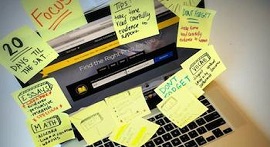Academics
Sometimes it can be challenging to understand how to apply your college coursework to your future career. But for the approximately 5,000 undergraduates at Massachusetts’ Worcester Polytechnic Institute, there’s no doubt that their global, project-based STEM education gives them “a lot of necessary tools” to succeed. From the very first day of class, many students say the “unique quarter system” and “projects that are related to the real world” are foundational to their success. This program, known as the WPI Plan, is split into seven-week terms, each of which has three classes. A two-term Great Problems Seminar serves to ease students into university-level research, and subsequent classes continue to emphasize the "learn by doing" method. Once settled into the WPI academic structure, many students take advantage of the “excellent resources for academics and future aspirations” by actively pursuing “personal engineering projects” and “opportunities for study abroad, co-ops, [and] internships.” Of course, as an interdisciplinary and global institution with over 50 project centers around the world, most students rave about the “research opportunities...available for students who wish to have a larger role in the subject they enjoy.” At the end of their academic career with WPI, not only do all students end up completing the equivalent of a minor in Humanities & Arts, but they know that their “hands-on learning, group work, and cool projects where you actually get to make something” are exactly what “employers love best about [them].”
Project-based learning is central to the academic experience at WPI, which involves an “incredibly supportive and collaborative” environment between students and faculty. A project often incorporates real world problems and “allows [students] to actually utilize the theoretical knowledge [they] are learning” via “lots of hands-on learning [where] students steer most projects themselves.” There are “a plethora of projects…that reflect what can actually happen in the workplace.” These ventures range from managing an “independent software startup” to completing a software engineering class that is “run like an internship.” Many students say that for both their larger capstone projects and regular coursework, “professors are always available for office hours and meetings” to help. Instructors also “work hard to engage students in course material,” so expect them to support all types of learners with lectures “reinforced with some kind of lab, project, practice, or interactive activity.” Working closely with such “interested and engaged” educators has had a long-term impact on some undergrads. As one student notes, “My chemistry professor has inspired me to pursue a masters or PhD in renewable energy after I graduate from WPI.”




